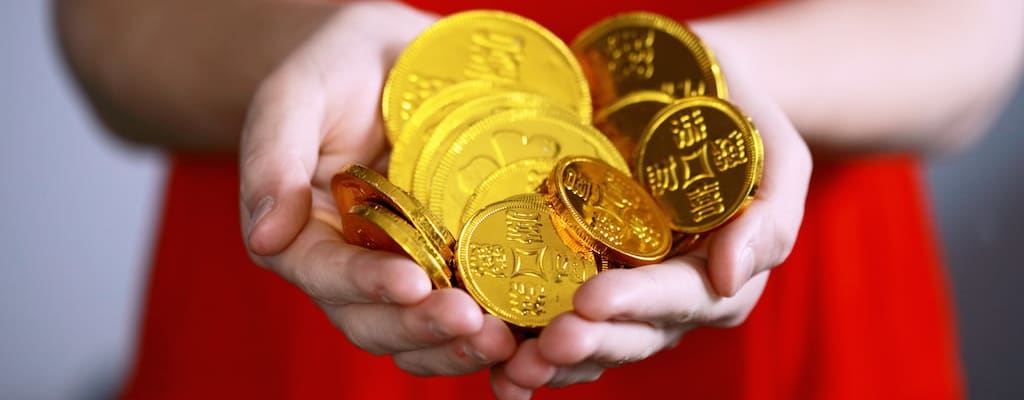hit upon: Idiom Meaning and Origin
What does ‘hit upon’ mean?
The idiom hit upon means to discover or think of something suddenly or by chance. It usually refers to finding a solution, idea, or plan unexpectedly and often when actively searching for it.

Idiom Explorer
The idiom "hit the nail on the head" means to accurately identify or pinpoint the main point or issue. It is used when someone makes a statement or observation that is exactly right or correct in every detail.
The idiom "hit the jackpot" means to achieve a great success or obtain an unexpected, significant gain, often in a financial sense.
The idiom "hit the jackpot" is a well-known phrase in American vernacular that is rooted in gambling terminology. This idiom is often used to express the idea of achieving great success by luck or chance.
First, let's take a look at the idiom "hit on" and its meaning and usage. The term "hit on" is commonly used in informal American English, primarily in the context of romantic or sexual advances. It can also be used to describe someone attempting to impress or gain favor with another person.
The idiom "hit it up" means to begin or start something, often with enthusiasm or energy.
The idiom "hit it up" is a popular phrase in American English. It is commonly used in informal contexts and can have multiple meanings depending on the context.
The idiom "hit it big" means to achieve great success or win a large amount of money, often unexpectedly or after a long period of hard work.
The idiom "hit it big" refers to achieving sudden and significant success or fame. It is commonly used in American English and has evolved to be used in various contexts and industries.
The idiom "happen along" is a commonly used phrase in American English. It consists of the verb "happen" and the preposition "along," forming a complete phrase with its own distinct meaning.
The idiom "fall into place" means that things become clear or organized, and a situation starts to make sense or work out successfully.
The idiom "fall into" means to unexpectedly begin or find oneself in a particular state, situation, or condition.
The idiom "eureka moment" refers to a sudden realization or discovery that solves a problem or brings about a significant understanding. It often occurs unexpectedly and is accompanied by a feeling of excitement or triumph.
Unveiling Unexpected Implications
The idiom "hit upon" is a commonly used phrase in American English that carries a specific meaning.
"Hit upon" is a phrasal verb that consists of the verb "hit" and the preposition "upon".
The verb "hit" in this idiom does not refer to a physical action of striking something, but instead denotes the notion of discovering or stumbling upon something.
The preposition "upon" in this context is used to indicate the direction or focus of the action.
When used together, the idiom "hit upon" implies the act of coming across or finding something unintentionally or unexpectedly.
The phrase can be used both literally and figuratively depending on the context in which it is used.
One common usage of this idiom is when someone accidentally comes across a solution or an idea that they had not previously considered.
This is similar to the idiom "chance upon", which also means to accidentally come across or find something. However, "chance upon" does not carry the connotation of discovery or stumbling upon as strongly as "hit upon".
For example, if someone is searching for a new book to read and they "hit upon" a bestseller in a local bookstore, it means they unexpectedly found a book that caught their interest without specifically looking for it.
The idiom can also be used when someone unexpectedly meets or encounters someone or something.
This is similar to the idiom "come across", which also means to unexpectedly meet or encounter someone or something. However, "come across" can also carry the connotation of conveying a particular impression or behavior during the encounter, whereas "hit upon" focuses more on the unexpected nature of the encounter itself.
For example, if someone is walking down the street and they "hit upon" an old friend they haven't seen in years, it means they unexpectedly came across that friend without any prior knowledge or intention.
It is worth noting that "hit upon" is a separable phrasal verb, which means that the object being discovered or stumbled upon can come before or after the particle "upon".
For instance, one can say "I hit upon a great idea" or "I hit a great idea upon".
This is similar to the idiom "come up with", which also means to discover or produce something, especially a creative idea. However, "come up with" focuses more on the act of producing or coming up with something consciously or deliberately, whereas "hit upon" emphasizes the accidental or unexpected nature of the discovery.
For example, if someone is brainstorming ideas for a new project and they "hit upon" a brilliant concept, it means they stumbled upon that concept unexpectedly and without actively searching for it.
While the exact origins of this idiom are not widely discussed in etymology sources, the meaning and usage of "hit upon" have been consistently understood and utilized in American English for many years.
Another idiom that shares some similarities with "hit upon" is "hit on", although their meanings differ.
The idiom "hit on" means to make a sexual advance or flirtation towards someone. It is important to note that "hit on" should be used sparingly and in appropriate contexts to avoid any unintended offense or discomfort.
The idiom "hit upon" is a phrasal verb that signifies the accidental discovery or encounter of something. Its usage can vary from stumbling upon new ideas to unexpectedly meeting someone. Although the precise origins of this idiom remain unknown, its meaning has been consistently recognized and employed in American English.
Example usage
Examples:
- I hit upon a great idea for a new business venture.
- She hit upon a solution to the math problem after hours of thinking.
- We hit upon a hidden treasure while cleaning out the attic.
More "Luck" idioms

